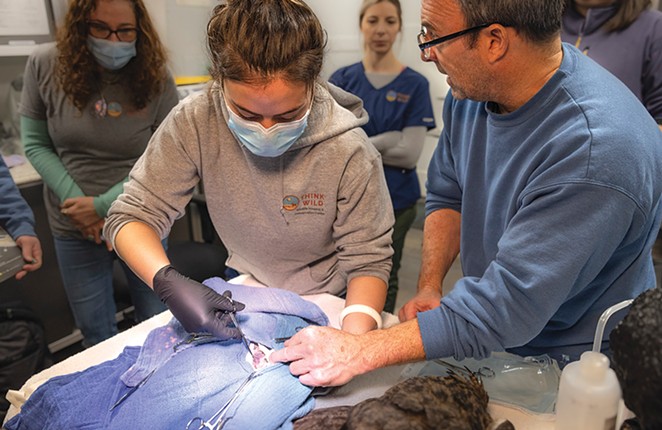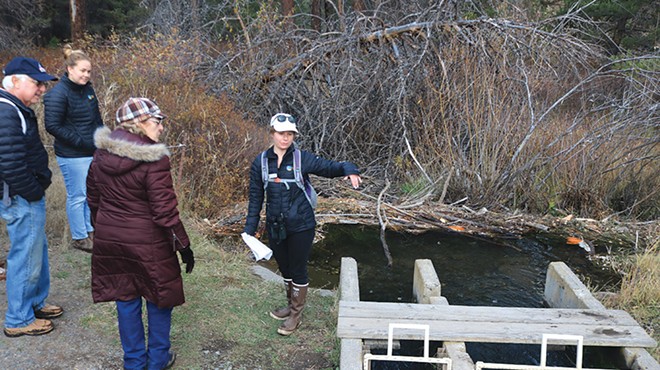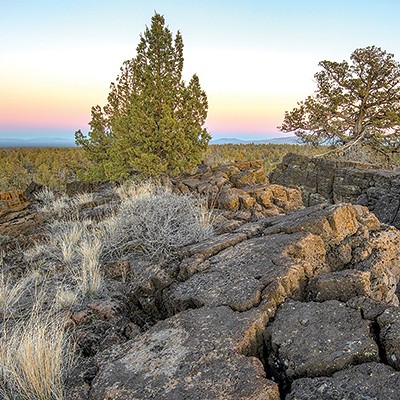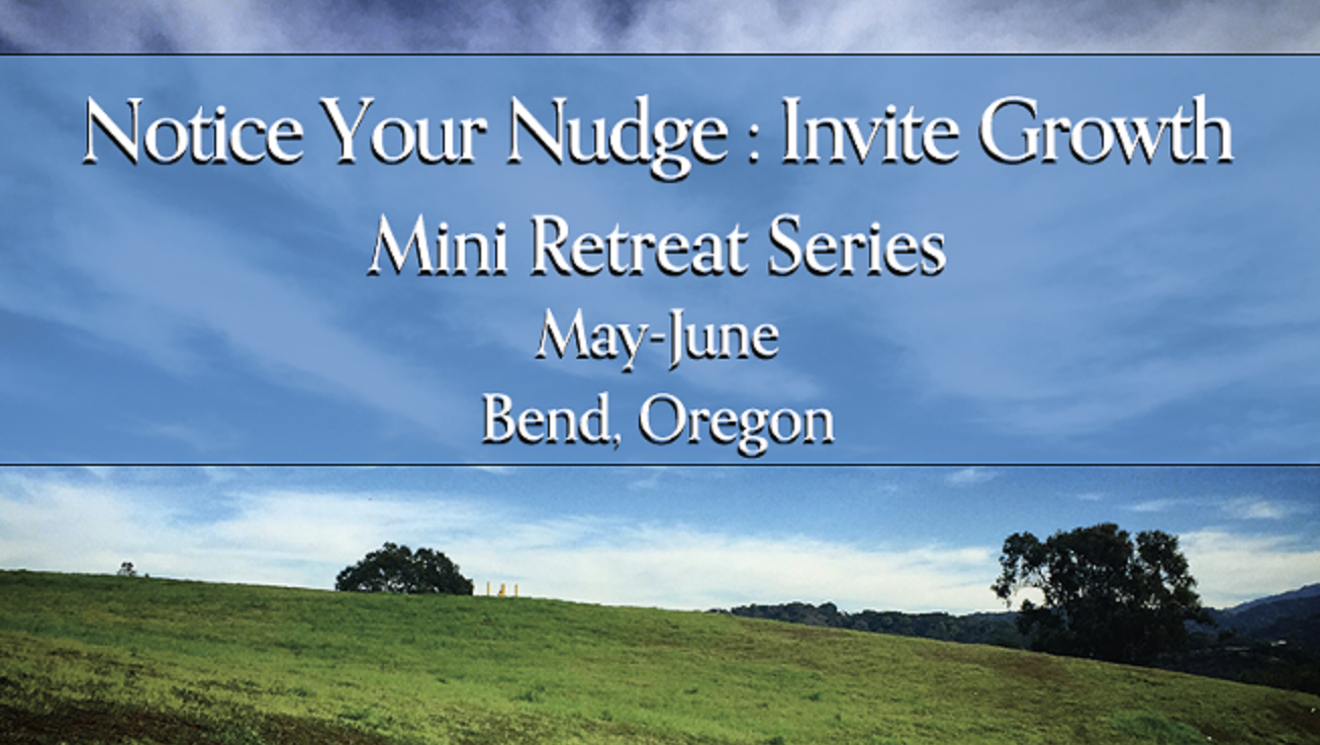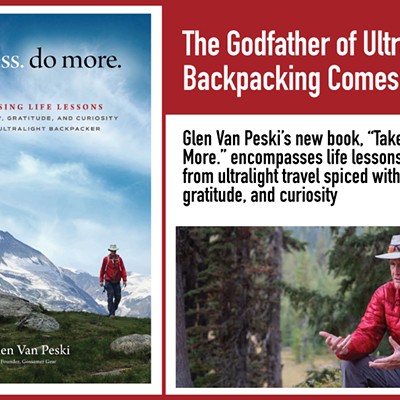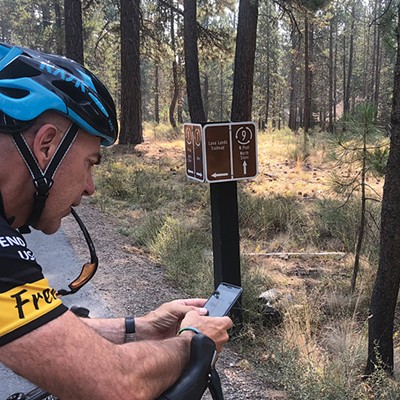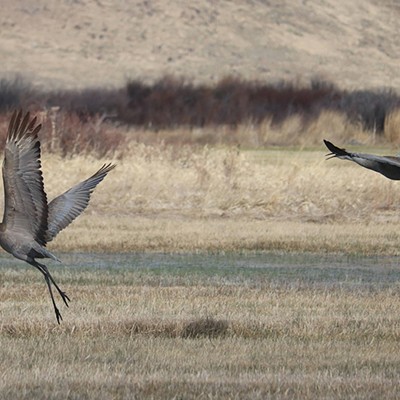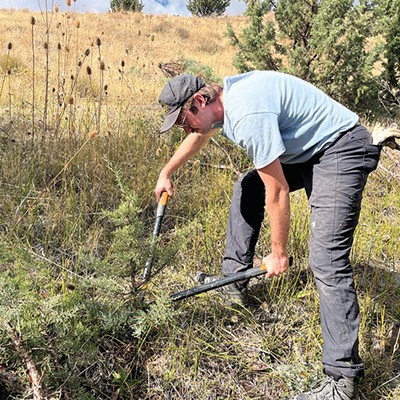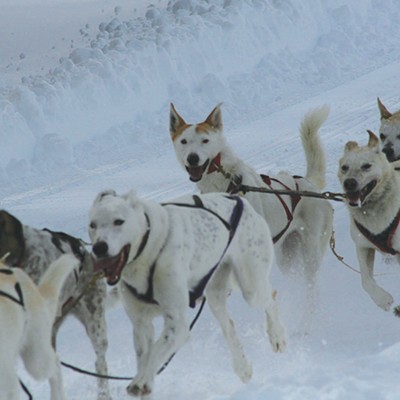Renowned raptor orthopedic surgeon, Dr. David Scott, former staff veterinarian at the Carolina Raptor Center and author of "Raptor Medicine, Surgery, and Rehabilitation" and other books used in veterinary medicine, recently led a Think Wild staff training in Bend.
"Dr. Scott was teaching the team, including myself, how to manage avian orthopedic cases that require surgical care — think about putting metal hardware in an animal (humans included) to fix a bone," said Dr. Laura Acevedo, DVM, WEMT-B, and Think Wild's veterinarian. The goal of the workshop was to provide Dr. Acevedo with the tools and necessary information to do orthopedic surgeries on patients, as well as to help the rehab staff with post-operative care training.
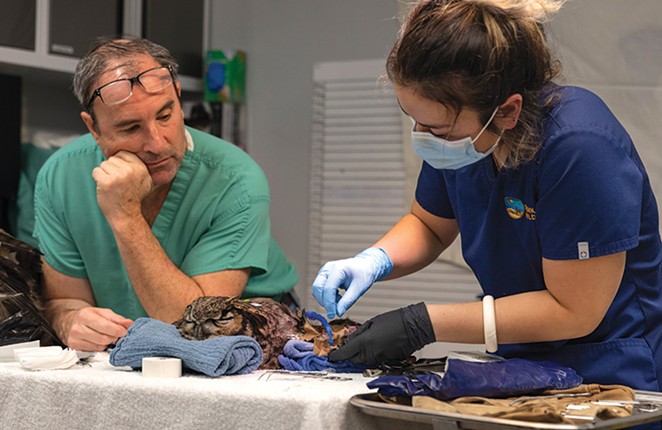
Scott is also a software engineer who received a bachelor's in electrical engineering from the University of Illinois in 1988 before getting his DMV at the University in 1997. He developed a medical record software called RaptorMed specifically for tracking the medical and husbandry records of a wide variety of wildlife species and is used in aquariums and wildlife rehab centers throughout the world.
"Dr. Acevedo had met Dr. Scott at the Carolina Raptor Center while doing a rotation there while she was in veterinary school," said Pauline Hice, director of wildlife rehabilitation at Think Wild. "About two years ago, while she and I were getting the hospital protocols all ready, we were discussing what was our goal in the next coming years with potential procedures that we could do in the future but didn't have the ability to do right now. Luckily, Laura had this connection with this world-renowned avian surgeon and so we decided to go forward with having Dr. Scott come to Think Wild."
"Dr. Scott will be teaching the team, including myself, how to manage avian orthopedic cases that require surgical care - think about putting metal hardware in an animal (humans included) to fix a bone."
— Dr. Laura Acevedo
For those unfamiliar with Think Wild, the organization is a wildlife hospital and conservation center located in Bend. Its mission is "to inspire the High Desert community to care for and protect native wildlife through education, conservation, rescue, and rehabilitation."
"We encounter a multitude of cases that affect raptors that may or may not require surgery. In the past, we have performed skin grafts, ocular eviscerations on owls (only), digit amputations and wound repairs caused by shootings, vehicle collisions, as well as barbed wire injuries, window strikes, interspecies disputes, incomplete predation attempts and more," said Acevedo.
To date, Think Wild staff has been able to do non-surgical interventions such as wing wraps to stabilize fractures. However, performing orthopedic surgery will increase the staff's ability to care for patients. "This will expand the number of patients that we can rehabilitate with more complex long bone fractures that would not otherwise do well with external coaptation alone," said Acevedo.
Think Wild developed a set of protocols, taking information from professional rehabilitators, veterinarians, textbooks and other resources, to determine a course of action.
"Every time an animal comes in, we have the same process of evaluating them," said Hice. "We then figure out what are their injuries and then based off of all the knowledge we've collected, that helps us make a clearer decision on how to move forward with treatment." That may even entail doing a blood transfusion from a donor bird to the patient (preferably from the same species but with limitations if the donor species is different than the recipient).
In 2023, Think Wild saw 621 patients including avian, mammalian and amphibian patients. Due to Oregon Department of Fish and Wildlife or U.S. Fish and Wildlife Service regulations and permitting, the hospital cannot except certain animals such as waterfowl, or rabbits and hares due to rabbit hemorrhagic disease virus. Its Wildlife Hotline (541-241-8680) got over 2,500 calls last year and is monitored for text or calls seven days a week.
"We did some analyzing on our hotline statistics and about 50% of the calls we were either able to solve over the phone or educate the caller on how to prevent things for the future," said Hice.
Utilizing the training with Scott, the Think Wild staff looks forward to being able to help more injured wildlife, especially those that may qualify for orthopedic surgery. Volunteers can help with the many arms of the organization, from educational programs to working in the rehab hospital or by contributing to the lengthy wish list of supplies needed for the treatment and care of injured wildlife.

